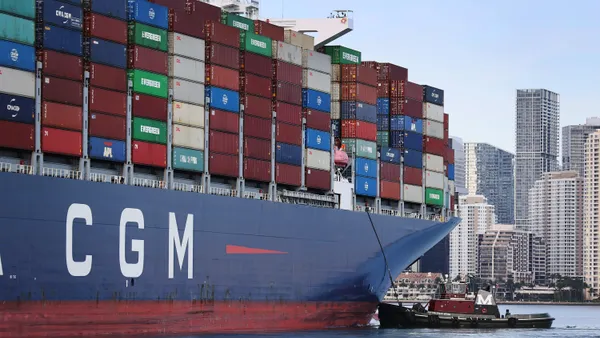DHL Express plans to implement a peak season surcharge, effective Sept. 15, according to an Aug. 1 earnings call.
The peak season surcharge will be based on the shipment’s original trade lane, DHL Group CFO Melanie Kreis told analysts during the call. She added that volumes out of Asia will be the highest, albeit differentiated between each lane.
“Seasonality got more extreme over the last year,” Kreis said. “The situation, particularly on the aviation side, got much more complex now with the arrival of the Chinese e-comm players, capacity constraints out of China, out of Asia overall [have] become even more pronounced.”
Kreis noted that the demand surcharge is not targeting the e-commerce companies out of China, but instead the overall market development.
China-based e-commerce players currently allocate a “very small portion of their business” to the “three big integrators,” the CFO told analysts. Instead, the majority of shipments are transported through direct charters or with freight forwarders. Although that means that the e-commerce companies only account for a small portion of Express volumes, the resulting market dynamics are a major driver for the surcharge.
Securing additional capacity is not getting easier, Kreis said.
“The Chinese e-comm players are significantly enhancing out of China peak season demand dynamic, which was already there beforehand, but which is now being augmented and which needs to be managed,” Kreis said.
The air cargo industry has been bracing for a busy Q4 as growing e-commerce demand from companies like Shein and Temu take up capacity and drive up air rates, according to a Xeneta report published in July. Anticipated capacity constraints has prompted some forwarders like Dimerco Express Group to launch a weekly air charter service to help handle peak season volumes.
Xeneta Chief Airfreight Officer Niall van de Wouw said in the July report that certain airlines and forwarders had already been thinking about implementing a peak season surcharge by the end of August. UPS is implementing peak season surcharges due to a shorter holiday shipping window and anticipated volume growth, and rival FedEx is expected to release its own peak season surcharges soon.














